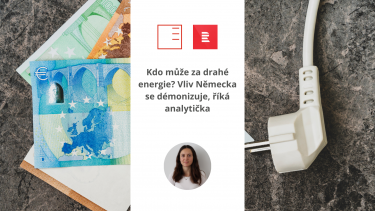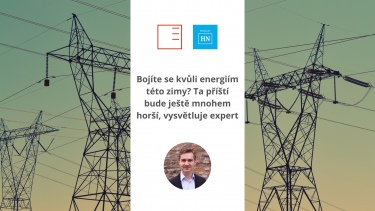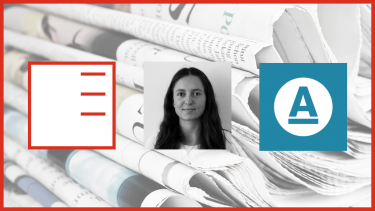Euractiv | More wind, less coal. What are the benefits of wind energy for the Czech Republic?
Coal has been an important part of the Czech economy for decades. As a fossil fuel, however, it is a significant producer of greenhouse gases, especially CO2. Our Research Fellow Jonathan Lyons and Senior Research Fellow Kateřina Davidová write in their commentary about the benefits of decarbonisation and switching to wind energy.
Show more
Respekt | It is absurd that states continue to subsidise fossil fuels and create a distorted market
In a podcast from the weekly magazine Respekt our senior researcher Kateřina Davidová evaluated the ongoing UN COP28 conference in Dubai and discussed the paradoxical subsidization of fossil fuels in the Czech Republic and the search for a socially just transition to renewable energies.
Show more
iDNES: Major reform of emission allowances coming, will make fuel and coal more expensive
Against all odds, the EU is sticking to its goal of becoming climate neutral by 2050. The next step is a major reform of emission allowances, tentatively agreed by EU Council and European Parliament negotiators just before Christmas. Emissions trading (ETS) will also apply to buildings and road transport from 2027. Our Senior Researcher Kateřina Davidová commented on this issue for iDNES.
Show more
Energie bez emisí: The decline of fossil fuels is clear, the biggest challenge is to solve raw material dependence
Our researcher Michal Hrubý was a guest on the Energy Without Emissions podcast. He answers questions on issues such as current energy prices and their possible future development, what impact climate change will have on industry, what is the state's strategy or how the state is approaching the situation.
Show moreiDNES.cz: Germans want to cap energy even for big companies, it may harm Czech firms
The German government plans to finance so-called price brakes, which are similar to the Czech price caps for consumers. The fundamental difference of the price brake in Germany is that it will also apply to large industrial enterprises. Our researcher Michal Hrubý commented on the situation.
Show moreiRozhlas: EU energy milestones: covid, green alternative, Russian attack and the search for consensus
iROZHLAS has prepared an overview of the energy measures discussed by the European Union in the context of the energy crisis. The review shows that the EU's securing of the energy market is not in line with the actions taken by national states. This inconsistency was also commented on by our researcher Michal Hrubý, who pointed to the need to proceed to a comprehensive solution at the level of the European Commission.
Show moreČRo Radiožurnál: Who is to blame for expensive energy? Germany's influence is being demonised, says analyst
At an emergency meeting of EU ministers called by the Czech Republic, ministers came up with proposals on how to tackle rising energy prices in the EU. The meeting was an important demonstration of European unity, says our senior research fellow Kateřina Davidová. At the same time, Davidová points to the overestimated and often demonised impact of Germany's nuclear exit on the energy situation.
Show more
RANNÍ BRÍFINK: Are you worried about the energies this winter? The next one will be much worse, expert explains
Our research fellow Michal Hrubý was a guest on Hospodářské noviny's Morning Briefing podcast, in which he talked about the energy situation. Are the politicians telling us the truth? Are some industrial enterprises in danger of being disconnected? Find out in this episode of the podcast.
Show moreAktuálně.cz: How to reduce dependence on Russia: Europe and others tackle gas, oil and coal cuts
Our researcher, Kateřina Davidová, commented for Aktuálně.cz on the latest package of sanctions against Russia by the European Union. According to her, the biggest impact on the Russian economy would be the restriction or ban on the purchase of mineral resources from the largest European customers or even from the whole European union. The best alternative to these energies would be to switch to renewable energy sources, says Kateřina Davidová.
Show more
Energie bez emisí: How will an emission-free economy transform Czech industry and transport?
Our researcher Kateřina Davidová appeared on Energie bez emisí programme, where she talked about how we can best help Czech industry with the transformation, despite the fact that domestic companies are rather sceptical about the transition to an emission-free economy.
Show more
Staroměstské náměstí 4/1
Prague 1 - Staré Město
110 00
tel.: +420 212 246 552
email: europeum@europeum.org
https://www.europeum.org









